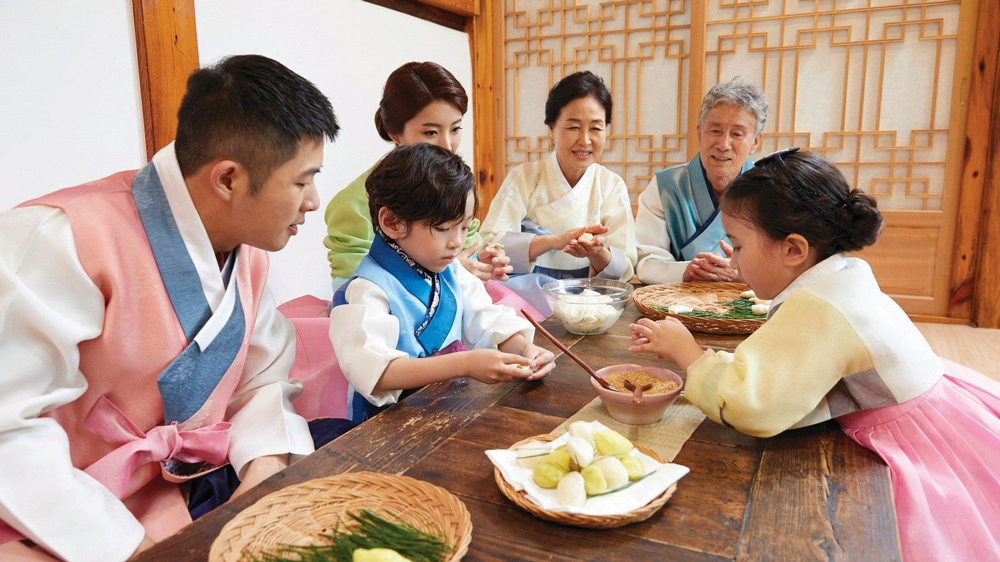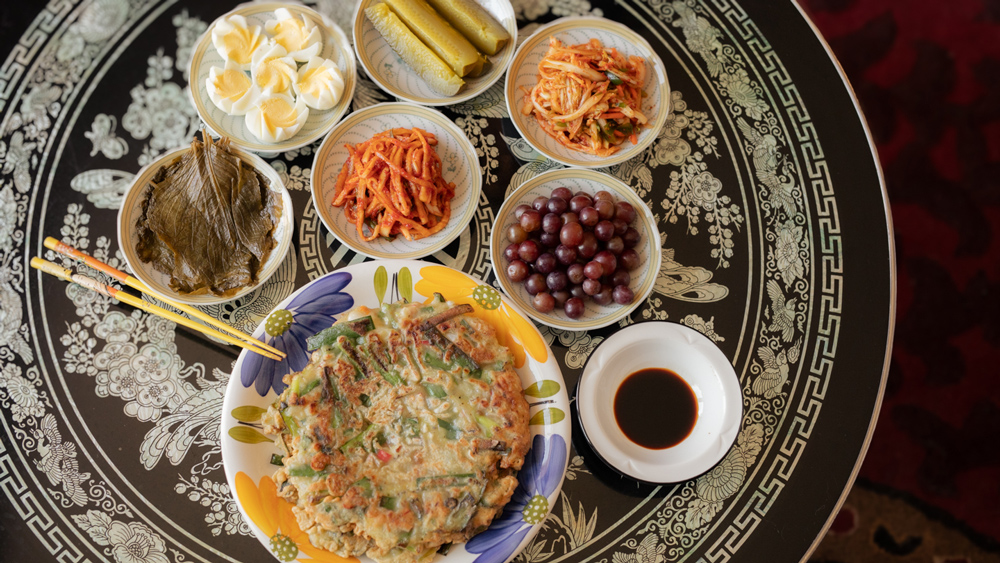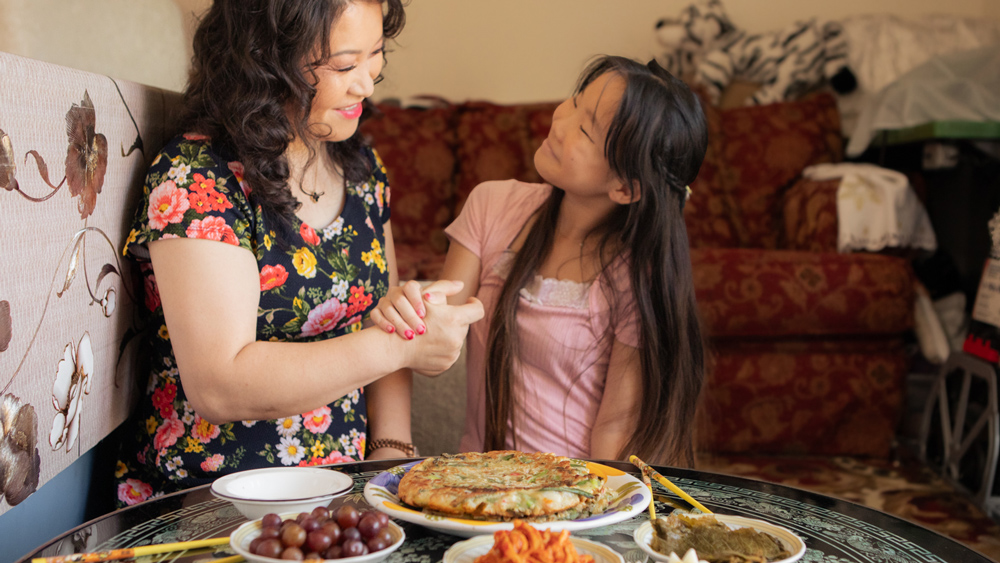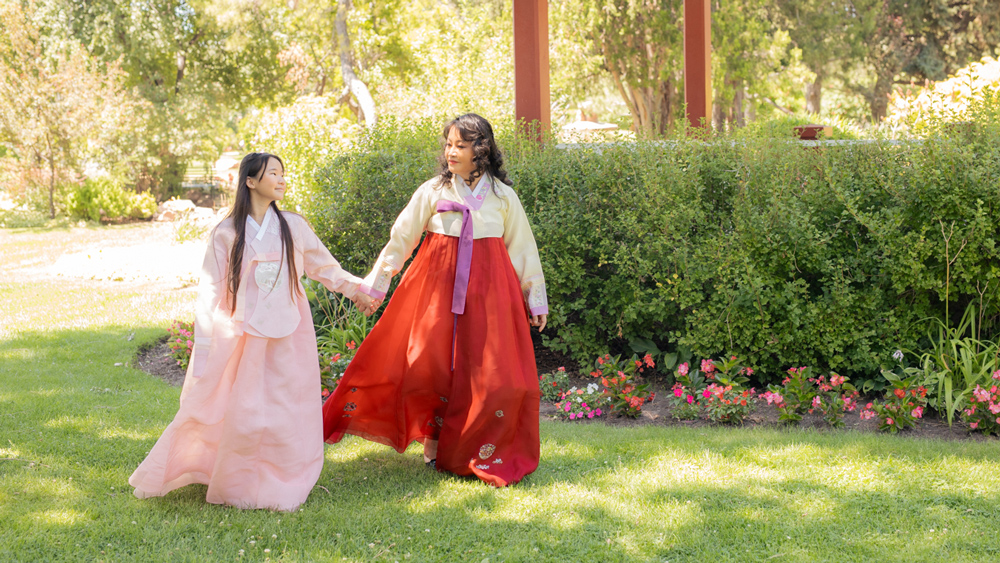A North Korean’s Promise to his Father | Joseph’s Story: Part 1

Most of you may know me as Joseph, but my Korean name is Kim Kwang Jin. It means, “walking forward with brightness.” My father gave me this name, full of the hopes and expectations many fathers have for their sons.
But hope is a hard thing to have, especially in a country like North Korea, and as a child, I certainly didn’t make it any easier for my father to believe in my brightness. Even in elementary school, I was a poor student.
The first time I remember making my father proud was through my cooking, not from studying. That day, he and my older sister had gone to the mountains to collect firewood. It was getting close to midnight, but they still hadn’t come home, so I decided to make dinner for them—rice and kimchi soup. At the end of dinner, my father said, Son, this is the best rice I’ve ever had. I had never made rice before, and I knew it was undercooked. That night I realized how much my father loves me. I promised myself that next time I would make him better rice.
But next time never came. When I was 12, my father died of starvation.

To save us from the same fate, my mother and sister left for China in search of work and food. My mom ended up in a North Korean prison. But my sister never returned. Within one year, I had lost my entire family. I was alone—helpless, homeless, and orphaned on the streets.
After three years of barely surviving, I decided to escape. The journey would be risky, but staying in North Korea would be a risk too. I knew I could die of starvation. So I took a chance. Unlike most people, I decided to escape during the daytime, thinking that the border guards would become complacent because why would anyone be crazy enough to cross the border in the middle of the day with nowhere to hide?
Fortunately, I made it to China without being caught.
In China, I slept in the mountains and went to towns begging for food to survive. One day, while crossing a bridge in Yanji, I remember it started to snow. Everyone around me started walking fast.
I remember being so envious because walking fast must have meant they had a home they were rushing toward. I, too, wanted to walk fast, but I had no home and no one waiting for me.
Later on, I was lucky enough to be taken in by a halmoni, an older grandmother. She fed me and let me live with her for six months but I still lived in hiding, fearful that at any moment I could be arrested and sent back to North Korea. The halmoni eventually connected me with Liberty in North Korea and I had an opportunity to escape China and be the first North Korean refugee minor to come to the United States.

I was placed with a foster family and began attending an American high school, which felt a bit ridiculous at first. Even in North Korea, I was an F student. I barely finished elementary school so jumping straight into high school in a foreign country felt overwhelming.
One evening, my foster mom made chicken wings. They were so good that I wanted more, but I realized there wasn’t enough for everyone to have seconds. So I held back, thinking no one would notice. As I stared at my plate, my foster dad placed his last wing in front of me. I looked up, and he smiled, urging me to eat without saying a word. In that silence, I felt the depth of his love and care.
At that moment, I thought of my biological father. Even during our hardest times, he used to share what little food he had with me. I wished more than anything that I could cook for him one last time and share one more meal together.
That night, I promised myself that I would study hard and go to college. I believed that was the best way to honor my father’s sacrifice and make him proud.
Continue reading part 2 of Joseph’s story

Years before Joseph would reach freedom, talk on the TED stage, write a memoir, and pursue his master’s at Harvard Kennedy School, Joseph’s father saw the brightness in his son. While he may not have been able to witness Joseph reach these milestones, none of it would have been possible without the depth of his love that became the foundation for Joseph’s life.
His family’s support, both in North Korea and in the US, has given Joseph the confidence to believe in and fulfill his brightness.
When recalling his past, warm childhood memories and gripping hardship are shared in the same breath. Joseph often says that North Korea is not a land of darkness, merely a land with darkness. Both can exist. But what matters is what we choose to focus on—the shadow cast by the regime or the brightness of the North Korean people.
Help more North Korean refugees reach freedom and share their brightness with the world.
Chuseok for North Koreans | No Way Home for the Holidays
Autumn is a significant season for many people and cultures around the world. It’s a period of transition and reflection, gratitude for the days gone by, and celebration of the harvest.
In both North and South Korea, this time of year is celebrated with Chuseok, or the mid-autumn festival. Also known as “Korean Thanksgiving,” it’s a major holiday that predates the division of the peninsula. Chuseok is observed on the 15th day of the 8th month of the lunar calendar, when the harvest moon shines brightest. Traditionally, people return to their ancestral hometowns to gather with family, share a variety of delicious foods, and pay respects to their ancestors.
But for North Korean refugees, there is no going back. Holidays like Chuseok can be a bittersweet time, one of both gratitude for a life in freedom and grief over being unable to celebrate with family still inside North Korea.
“The first Chuseok in the US felt very empty and lonely. It was just me and my two-year-old daughter, Mia, back then. It didn’t feel like a holiday. I had multiple emotions at the same time. Loneliness, emptiness… there were so many feelings that I couldn’t even put into words.“
– Holly, escaped North Korea in 2013
Chuseok celebrations have evolved to look a little different in North versus South Korea, and even in countries like the US where the Korean diaspora have resettled.

Chuseok Traditions in South Korea
In South Korea, Chuseok is considered the largest and most important holiday of the year. It’s celebrated over three days, during which a “national migration” takes place as people all over the country travel to their hometowns or to go sightseeing. Tickets for planes, trains, and buses are sold out months in advance, and freeways are packed with bumper-to-bumper traffic during the holiday period.
On the morning of Chuseok, families hold a memorial service for their ancestors at home, known as charye (차례). A table of food is prepared as an offering, typically featuring rice cakes, fresh fruits and vegetables, meat dishes, and the favorite meals of deceased loved ones. Families will also visit ancestral gravesites, a custom known as seongmyo (성묘), to pay their respects and tend to the graves.

From the ancestral table to large family meals, food is a central part of Chuseok celebrations. The defining dish of this holiday is seongpyeon (송편), a chewy, sweet, and nutty half-moon shaped rice cake steamed in fresh pine needles. It’s traditionally made with rice from the year’s harvest, finely milled into flour. Preparing seongpyon becomes a family activity as each piece is shaped by hand and filled with red bean paste, toasted sesame seeds, or chestnuts.
Other holiday foods include pajeon(파전), a crispy, savory pancake made with green onions; galbijjim (갈비찜), sweet and savory braised short ribs; and japchae(잡채), glass noodles stir-fried with meat and vegetables.

How Chuseok is Celebrated in North Korea
In North Korea, Chuseok is just a one-day celebration. While it is considered a key traditional holiday, its importance has been minimized relative to national holidays like the birthdays of Kim Il-sung and Kim Jong-il, and the anniversary of the founding of the Worker’s Party.
On both traditional and national holidays, North Koreans are urged to visit the statues of Kim family leaders or the Kumsan Palace of the Sun in Pyongyang, where the bodies of Kim Il-sung and Kim Jong-il lie.
It is much less common for widespread travel to take place during Chuseok due to severe travel restrictions and poor transportation infrastructure. However, these constraints have also made it so that generations of North Koreans remain in close proximity to their hometowns and relatives. For Chuseok, people gather with their nearby family members. Just like in South Korea, they’ll prepare special foods as offerings for charye, and then visit ancestral grave sites to pay respects.
After ancestral rites, festivities become a community affair with traditional food and folk games shared amongst family, friends, and neighbors. Songpyeon is also a holiday staple, but the North Korean version is made with a minced meat and vegetable filling, and are twice as big as South Korean ones. Common folk games are yutnori (윷놀이), a board game, and ssireum (씨름), or Korean wrestling.
Holly & Mia: A Legacy of Freedom
It’s been over a decade since Holly left her hometown in North Korea. But whenever she makes pajeon (파전), it takes her right back to her childhood—sitting by the frying pan and watching her mom cook, eagerly awaiting a taste. “Pa”(파) means green onion and “jeon”(전) refers to foods that have been pan-fried or battered. There are many varieties of “jeon,” made with everything from potatoes to zucchini, seafood, kimchi, and more.
Holly saw her mom cook this dish countless times in North Korea. It was an inexpensive, everyday staple, but also an essential part of the holidays. Every year for Chuseok, the mouthwatering aroma of oil and batter would draw everyone to the kitchen, where a colorful assortment of jeon was being prepared.
Holly now lives halfway across the world from North Korea, but every year during Chuseok, she sets out an offering table for charye. For hours, she prepares foods like pajeon with great care, remembering and honoring her parents and loved ones, who she can’t be with for the holidays.

In 2016, Holly reached freedom through LiNK’s rescue networks with one-year-old Mia in her arms.
Mia is now at an age where she’s able to understand some of the things her mother went through. Holly has begun to open up more about her life in North Korea, and does her best to keep their small family connected to their Korean heritage. She takes Mia to Korean language school on Sundays, and makes an effort to celebrate cultural holidays, like Chuseok. What can’t be put into words, Holly communicates through food—their dinner table is always full of delicious Korean cooking.
In 2024, Holly received her US citizenship, nine years after her resettlement!
"When I obtained my US citizenship, it felt like my escape journey was finally complete. I cried and felt so grateful to the US for giving me a new life. My greatest happiness is seeing Mia have a childhood free of the painful hardships that defined mine.”

These days, Chuseok has become a lively gathering with the many friends and neighbors they’ve met over the years! Holly gathers with other Koreans in the community, and they go all-out preparing delicious seongpyeon and pajeon. She takes great pride in wearing traditional hanboks with Mia, and explaining each dish when guests arrive. The festivities always continue long after dinner, with Korean games like jegichagi, a version of hacky sack, and yutnori, a board game.
Living in the US, Holly and Mia have been introduced to new traditions too. Just a month after Chuseok, their community gathers again to celebrate Thanksgiving with turkey and pumpkin pie, in true American fashion.

Holly still has hope that in her lifetime, she’ll be able to celebrate Chuseok with all her family and bring Mia to visit her hometown in North Korea.
We’re working towards the day when families don’t have to be separated. To date, LiNK has rescued almost 1400 North Korean refugees and their children, reuniting over 500 people with their families in freedom. As we’re helping North Koreans, like Holly, build new lives, we’re also leading initiatives to increase change inside North Korea, through advocacy, information access, and more.
Become a monthly donor and create a long-lasting legacy of freedom. Your support will rescue North Korean refugees waiting for their chance to escape right now, and fuel work that is increasing change and opening inside North Korea.




